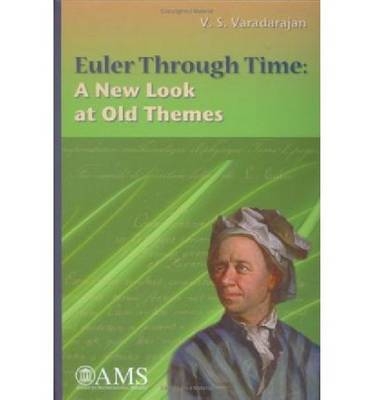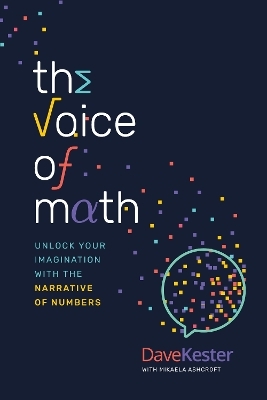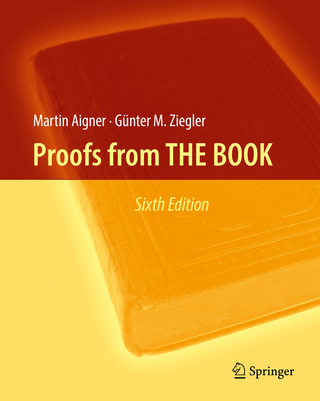
Euler Through Time
A New Look at Old Themes
2006
American Mathematical Society (Verlag)
978-0-8218-3580-7 (ISBN)
American Mathematical Society (Verlag)
978-0-8218-3580-7 (ISBN)
Euler is one of the greatest and most prolific mathematicians of all time. This book examines his work and its relation to current mathematics. It also treats the progression of ideas regarding divergent series from Euler to many parts of modern analysis and quantum physics.
Euler is one of the greatest and most prolific mathematicians of all time. He wrote the first accessible books on calculus, created the theory of circular functions, and discovered new areas of research such as elliptic integrals, the calculus of variations, graph theory, divergent series, and so on. It took hundreds of years for his successors to develop in full the theories he began, and some of his themes are still at the center of today's mathematics. It is of great interest therefore to examine his work and its relation to current mathematics. This book attempts to do that. In number theory the discoveries he made empirically would require for their eventual understanding such sophisticated developments as the reciprocity laws and class field theory.His pioneering work on elliptic integrals is the precursor of the modern theory of abelian functions and abelian integrals. His evaluation of zeta and multizeta values is not only a fantastic and exciting story but very relevant to us, because they are at the confluence of much research in algebraic geometry and number theory today (Chapters 2 and 3 of the book). Anticipating his successors by more than a century, Euler created a theory of summation of series that do not converge in the traditional manner.Chapter 5 of the book treats the progression of ideas regarding divergent series from Euler to many parts of modern analysis and quantum physics. The last chapter contains a brief treatment of Euler products. Euler discovered the product formula over the primes for the zeta function as well as for a small number of what are now called Dirichlet $L$-functions. Here the book goes into the development of the theory of such Euler products and the role they play in number theory, thus offering the reader a glimpse of current developments (the Langlands program). For other wonderful titles written by this author see: ""Supersymmetry for Mathematicians: An Introduction"", ""The Mathematical Legacy of Harish-Chandra: A Celebration of Representation Theory and Harmonic Analysis"", ""The Selected Works of V.S. Varadarajan"", and ""Algebra in Ancient and Modern Times"".
Euler is one of the greatest and most prolific mathematicians of all time. He wrote the first accessible books on calculus, created the theory of circular functions, and discovered new areas of research such as elliptic integrals, the calculus of variations, graph theory, divergent series, and so on. It took hundreds of years for his successors to develop in full the theories he began, and some of his themes are still at the center of today's mathematics. It is of great interest therefore to examine his work and its relation to current mathematics. This book attempts to do that. In number theory the discoveries he made empirically would require for their eventual understanding such sophisticated developments as the reciprocity laws and class field theory.His pioneering work on elliptic integrals is the precursor of the modern theory of abelian functions and abelian integrals. His evaluation of zeta and multizeta values is not only a fantastic and exciting story but very relevant to us, because they are at the confluence of much research in algebraic geometry and number theory today (Chapters 2 and 3 of the book). Anticipating his successors by more than a century, Euler created a theory of summation of series that do not converge in the traditional manner.Chapter 5 of the book treats the progression of ideas regarding divergent series from Euler to many parts of modern analysis and quantum physics. The last chapter contains a brief treatment of Euler products. Euler discovered the product formula over the primes for the zeta function as well as for a small number of what are now called Dirichlet $L$-functions. Here the book goes into the development of the theory of such Euler products and the role they play in number theory, thus offering the reader a glimpse of current developments (the Langlands program). For other wonderful titles written by this author see: ""Supersymmetry for Mathematicians: An Introduction"", ""The Mathematical Legacy of Harish-Chandra: A Celebration of Representation Theory and Harmonic Analysis"", ""The Selected Works of V.S. Varadarajan"", and ""Algebra in Ancient and Modern Times"".
Leonhard Euler (1707-1783) The universal mathematician Zeta values Euler-Maclaurin sum formula Divergent series and integrals Euler products Gallery Sample pages from Opera Omnia: Sample pages from {/it Opera Omnia} Index.
| Erscheint lt. Verlag | 1.6.2006 |
|---|---|
| Zusatzinfo | facsims. |
| Verlagsort | Providence |
| Sprache | englisch |
| Gewicht | 714 g |
| Themenwelt | Mathematik / Informatik ► Mathematik ► Arithmetik / Zahlentheorie |
| Mathematik / Informatik ► Mathematik ► Geschichte der Mathematik | |
| ISBN-10 | 0-8218-3580-7 / 0821835807 |
| ISBN-13 | 978-0-8218-3580-7 / 9780821835807 |
| Zustand | Neuware |
| Haben Sie eine Frage zum Produkt? |
Mehr entdecken
aus dem Bereich
aus dem Bereich
Sieben ausgewählte Themenstellungen
Buch | Softcover (2024)
De Gruyter Oldenbourg (Verlag)
64,95 €
unlock your imagination with the narrative of numbers
Buch | Softcover (2024)
Advantage Media Group (Verlag)
19,90 €


